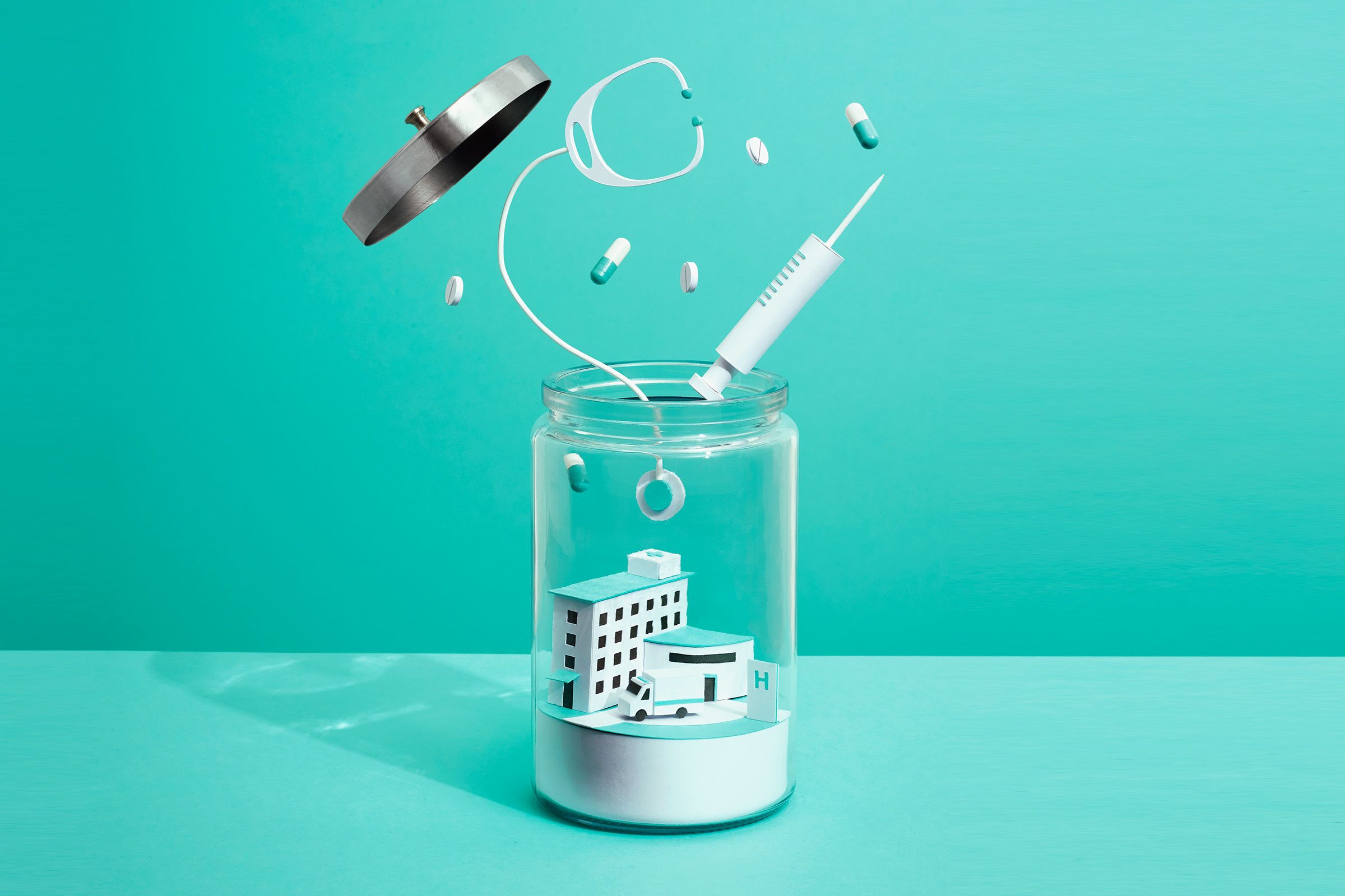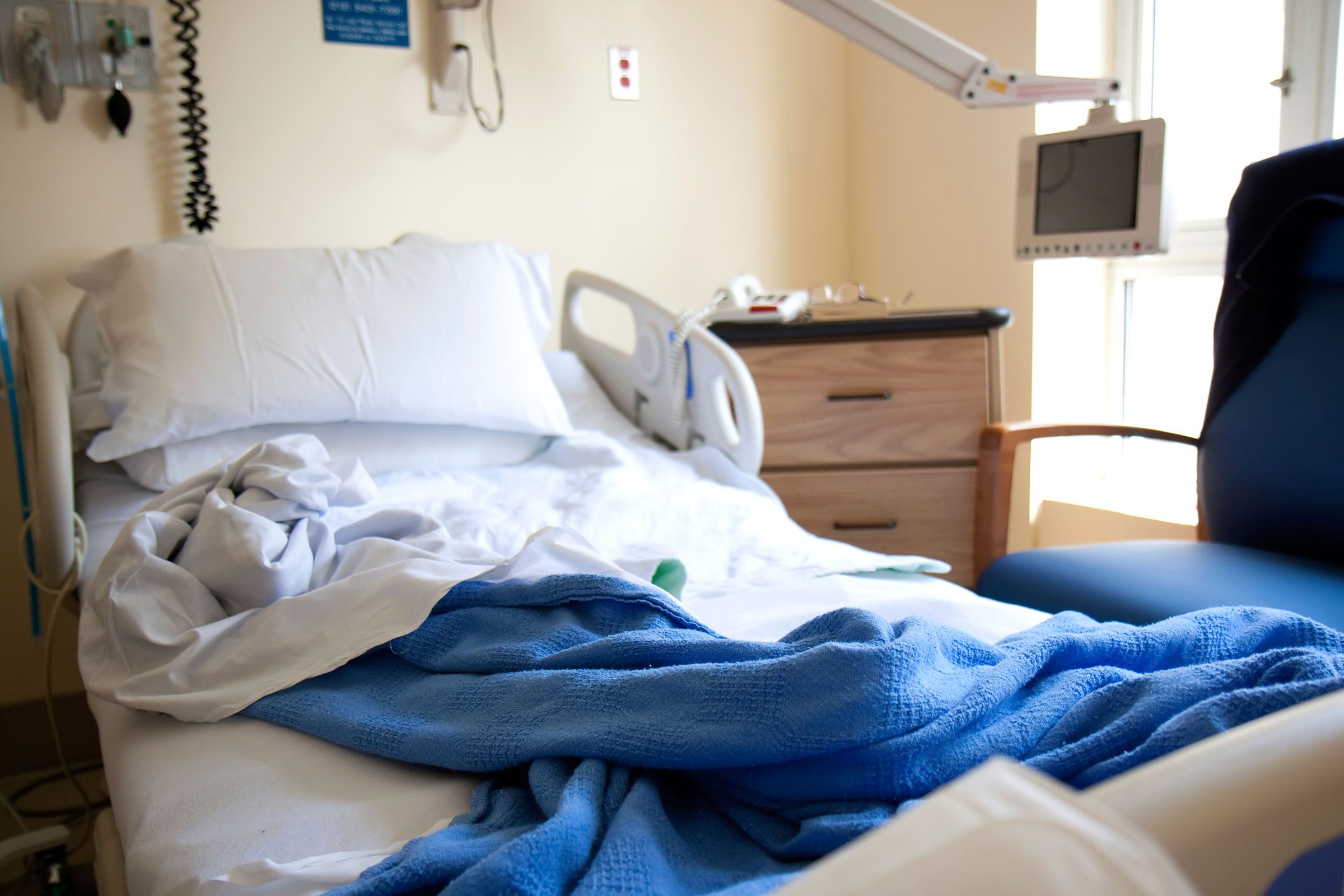50 Secrets Hospitals Don’t Want to Tell You (But Every Patient Should Know) BY MICHELLE CROUCH ( COURTECY;;- READER’S DIGEST )
- লিঙ্ক পান
- ইমেল
- অন্যান্য অ্যাপ
50 Secrets Hospitals Don’t Want to Tell You (But Every Patient Should Know)
No one looks forward to a health crisis, but our insights and tips will help you get better medical care, cut hospital bill costs, and get out of the hospital alive.
Pick a teaching hospital
 PAPER ARTWORK BY KYLE BEAN, PHOTOGRAPH BY MITCH PAYNE FOR READER'S DIGEST
PAPER ARTWORK BY KYLE BEAN, PHOTOGRAPH BY MITCH PAYNE FOR READER'S DIGEST
"For complex surgical procedures, you’re generally better off at teaching hospitals, which usually stay at the forefront of health research. Medical students and residents ask questions, providing more eyes and ears to pay attention and prevent errors. Teaching hospitals have lower complication rates and better outcomes." —Evan Levine, MD, a cardiologist and the author of What Your Doctor Can’t (or Won’t) Tell You. Don't miss these other 50 things your surgeon won't tell you.
Beware freestanding ERs
 ISTOCK/MONKEYBUSINESSIMAGES
ISTOCK/MONKEYBUSINESSIMAGES
"Those freestanding ERs popping up all over? They typically don't have anywhere near the resources of hospital ERs, yet they cost just as much. Go there for small bumps and bruises. For something serious (chest pain, a badly broken bone), get to a trauma center where specialists and surgeons work." —James Pinckney, MD, an ER doctor, founder of Diamond Physicians in Dallas, Texas. Check out these other 50 secrets an ER staff won't tell you.
Shop around for rehab
 ISTOCK/TATOMM
ISTOCK/TATOMM
"If you’re being released for rehab, shop around for a place that has experience with your condition. We found that rehab facilities that handle more than two dozen hip fractures a year were more than twice as likely to successfully discharge seniors within a month as less experienced facilities were." —Pedro Gozalo, a public health researcher at Brown University in Providence, Rhode Island. Here are 14 more secrets physical therapists aren't telling you.
Sanitize everything
 ISTOCK/ROBERTPRZYBYSZ
ISTOCK/ROBERTPRZYBYSZ
"Superbugs live everywhere, and they can travel. Even if your doctor washed his hands, that sparkling white coat brushing against your bed can easily transfer a dangerous germ from someone else’s room. Ask for bleach and alcohol wipes to clean bed rails, remotes, doorknobs, phones, call buttons, and toilet flush levers. Wash your hands before you eat." —Karen Curtiss, author of Safe & Sound in the Hospital: Must-Have Checklists and Tools for Your Loved One’s Care. Here are 14 more tips to avoid getting sick.
Join the conversation
 ISTOCK/MONKEYBUSINESSIMAGES
ISTOCK/MONKEYBUSINESSIMAGES
"Ask your nurses to do a 'bedside shift change.' This is when they share information in your presence instead of at the nurses’ station. You can better correct any errors. [Studies show it also improves communication and care.]" —Karen Curtiss. Here are 9 other mistakes that can lead to misdiagnosis in the ER.
Don't be a distraction
 ISTOCK/STEVE DEBENPORT
ISTOCK/STEVE DEBENPORT
"Don’t interrupt the nurse when he’s preparing your medications. One study found that the more times you distract him, the greater the likelihood of error. [Each interruption was linked to a 12 percent increase in errors.]" —Sally Rafie, a hospital pharmacist with the UC San Diego Health System. Check out these other 34 secrets your pharmacist won't tell you.
Ask what your doctor will be doing
 ISTOCK/REMAINS
ISTOCK/REMAINS
"The surgeon who performed the best in our complication rate analysis said he and his partner drape their patients, do the whole operation, and close the incision themselves. He said, 'I just know nobody is going to do it as carefully as I’m going to.' Check whether your doctor will be doing your entire procedure and whether she will do your follow-up care." —Marshall Allen, a reporter who covers patient safety for ProPublica, a nonprofit news outlet. Find out why you probably shouldn't trust a plastic surgeon on Instagram.
Nurses are overwhelmed
 ISTOCK/LAFLOR
ISTOCK/LAFLOR
"Hospitals often force nurses to handle more patients than they should—even though studies show if your nurse is responsible for fewer patients, they have better outcomes. California is the only state with hospital-wide minimum nurse-patient staffing ratios. Researcher Linda Aiken at the University of Pennsylvania found that each extra patient a nurse has above an established nurse-patient ratio made it 7 percent more likely that one of those patients would die." —Deborah Burger, RN, copresident of National Nurses United. Here are 50 more secrets nurses want you to know.
Administrators make big bucks
 ISTOCK/CATHERINE LANE
ISTOCK/CATHERINE LANE
"Top administrators at U.S. hospitals are paid extremely well. CEOs make $400,000 to $500,000 a year, not including benefits like stock options. Administrative expenses eat up as much as 25 percent of total hospital expenses we pay for—much higher than in other countries." —Cathy Schoen, executive director of the Council of Economic Advisors at the Commonwealth Fund, a foundation that focuses on health care. Hold on to your own money with these 11 tips for lowering your hospital bill.
Doctors are incentivized to overtreat
 ISTOCK/WAVEBREAKMEDIA
ISTOCK/WAVEBREAKMEDIA
"I hear from surgeons all the time whose bosses are basically beating on them to do more operations. While some hospital systems have moved to flat salaries, most still provide bonuses for more volume. Doctors have an incentive for overtreatment." —Marty Makary, MD, MPH, a surgeon and the author of Unaccountable: What Hospitals Won’t Tell You and How Transparency Can Revolutionize Health Care. Be extra careful when it comes to these 14 risky medical treatments that don't always work.
You may unknowingly pay for out-of-network care
 ISTOCK/STURTI
ISTOCK/STURTI
"Even if you’re careful to choose a hospital and a surgeon that are in network, there’s no guarantee that everyone involved in your care at the hospital is also in network. The radiologist, anesthesiologist, pathologist, and even the assistant surgeon could be out of network, and—surprise!—you’ll be billed at a much higher rate. [Some states, including New York and California, now have laws to prevent this from happening.]" —Cathy Schoen. Use these 16 questions to save money on medication.
Ask if you'll be admitted
 ISTOCK/BITTERFLY
ISTOCK/BITTERFLY
"You can stay overnight in the hospital but never officially be 'admitted.' Instead, the hospital can say you are there 'under observation.' That can be tricky for seniors because if they’re then sent to a nursing home for rehab, Medicare won’t pay for it unless they were actually admitted. Always ask whether you’re admitted." —Deborah Burger, RN. Plus, watch for these 10 signs a hospital wants to discharge you too early.
Hospitals side with doctors
 ISTOCK/MONKEYBUSINESSIMAGES
ISTOCK/MONKEYBUSINESSIMAGES
"The hospital is incentivized to keep doctors happy. Surgeons bring in patients, who bring in dollars. If a patient has a complaint about a doctor or if a doctor has a high complication rate, the hospital’s financial incentive is to protect the doctor." —Marshall Allen. Find out why your pharmacist probably knows more than your doctor.
Specialists quietly pad your bill
 ISTOCK/PIXDELUXE
ISTOCK/PIXDELUXE
"Less-well-trained physicians will call in an abundance of consults to help them take care of the patient. If those specialists check on you every day, your bill is being padded and padded. Ask whether those daily visits are necessary." —Evan Levine, MD. Don't miss these other 18 secrets health insurance companies don't want you to know.
Ask how to recover faster
 ISTOCK/MONKEYBUSINESSIMAGES
ISTOCK/MONKEYBUSINESSIMAGES
"Since each day in the hospital costs $4,293 on average, one of the best ways to cut costs is to get out sooner. Find out what criteria you need to meet to be discharged, and then get motivated, whether it’s moving from the bed to a chair or walking two laps around the hospital floor." —James Pinckney, MD. Ask about these 5 ways to recover from surgery faster.
Bring your own meds
 ISTOCK/DOLGACHOV
ISTOCK/DOLGACHOV
"It’s a lot cheaper—and usually OK—to bring your own medicines from home, but the hospital pharmacy will have to check them to verify they are what the bottle says. Just ask your doctor to write the order." —Michele Curtis, MD, an ob-gyn in Houston, Texas. Don't miss these 10 signs you're taking too many prescriptions.
Check, check, check your bill
 ISTOCK/GPOINTSTUDIO
ISTOCK/GPOINTSTUDIO
"Eight out of ten hospital bills we see contain an error, so check your bill carefully. You may identify a drug you didn’t take. Or you know that you discontinued a treatment on Tuesday, but you were charged for Wednesday. The number on the bill is only a starting point. Try to negotiate for 35 to 50 percent off the charges." —Pat Palmer, CEO of Medical Billing Advocates of America. Find out how much you pay for healthcare compared to other states.
Second-guess tests
 ISTOCK/VM
ISTOCK/VM
"Fifteen to 30 percent of everything we do—tests, medications, and procedures—is unnecessary, our research has shown. It’s partly because of patient demand; it’s partly to prevent malpractice. When your doctor orders a test, ask why, what he expects to learn, and how your care will change if you don’t have it." —Marty Makary, MD. Learn if genetic testing is really worth it.
Hospitals are becoming more like hotels
 ISTOCK/MONKEYBUSINESSIMAGES
ISTOCK/MONKEYBUSINESSIMAGES
"Hospitals worry about losing revenue to retail clinics, urgent-care centers, and private surgery centers. To attract patients, they try to appear like hotels. They have waterfalls, pianos, and big windows. Instead of hiring people with backgrounds in health care, they’re bringing in people with experience in retail and five-star hotels." —Bill Balderaz, a health-care IT consultant. Check out these other 12 insider tips for improving your hospital stay.
We're not prepped for Ebola
 ISTOCK/LAFLOR
ISTOCK/LAFLOR
"Hospitals say, 'Don’t worry. We’re prepared for a serious disease like Ebola.' But nurses on the front lines treating these patients are scratching their heads and thinking, We are not prepared at all. We are fighting to get the right equipment and training to take on these infectious diseases." —Karen Higgins, RN, copresident of Nurses United. Here are 16 more medical facts doctors want everyone to know.
Hospitals are getting violent
 ISTOCK/FANGXIANUO
ISTOCK/FANGXIANUO
"There is more violence than ever before. Nurses have been attacked, bitten, spit on, and choked. It’s partly because hospitals are no longer prescribing pain meds to addicts, and addicts can get very aggressive. It’s also because our mental health system is broken, so some of those people are coming into the hospital and acting out." —John M. White, a hospital security consultant. Thankfully, science has figured out how to treat pain without addictive pain meds.
We've seen it ALL
 ISTOCK/KNAPE
ISTOCK/KNAPE
"We see crazy things. I had a patient run buck naked into the ER waiting room. A patient asked me out while I was holding a basin, catching his vomit. We pull bugs out of people’s ears regularly." —An ER nurse in Dallas, Texas. Don't miss these other 11 crazy stories from ER staff.
Hospitals cut chaplains to save money
 ISTOCK/CHRISTIANCHAN
ISTOCK/CHRISTIANCHAN
"Spiritual care is not a profitable area for hospitals, so it gets cut. The vast majority don’t have enough chaplains, and some U.S. hospitals today don’t have chaplains at all." —Rev. Eric J. Hall, CEO of the HealthCare Chaplaincy Network, a New York–based nonprofit. Read these 8 life lessons from chaplains and other people who spend time with the dying.
We bet on (or against) you
 ISTOCK/SCOTT KOCHSIEK
ISTOCK/SCOTT KOCHSIEK
"Hospital staffers have placed bets on patients. Guess the Blood Alcohol is a common game, where money (or drinks) changes hands. Others try to guess the injuries of a patient arriving via ambulance. Surgeons have been observed placing bets on outcomes of risky procedures." —Alexandra Robbins, author of The Nurses: A Year of Secrets, Drama, and Miracles with the Heroes of the Hospital. Before your next visit, use these 7 tips to find a doctor you can trust.
- লিঙ্ক পান
- ইমেল
- অন্যান্য অ্যাপ
মন্তব্যসমূহ
একটি মন্তব্য পোস্ট করুন